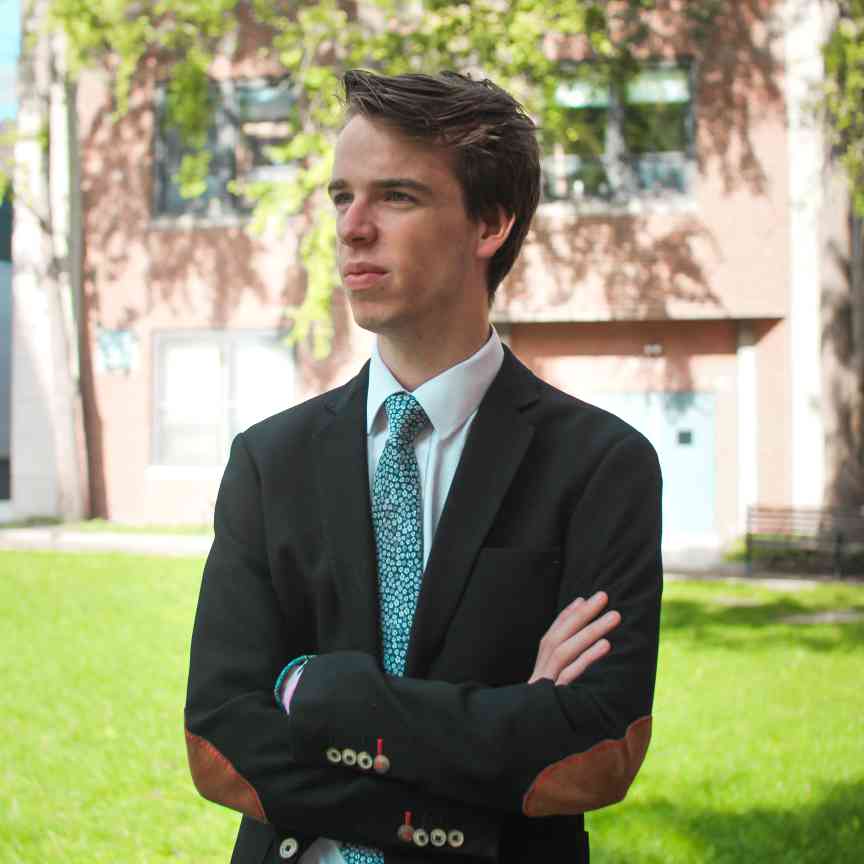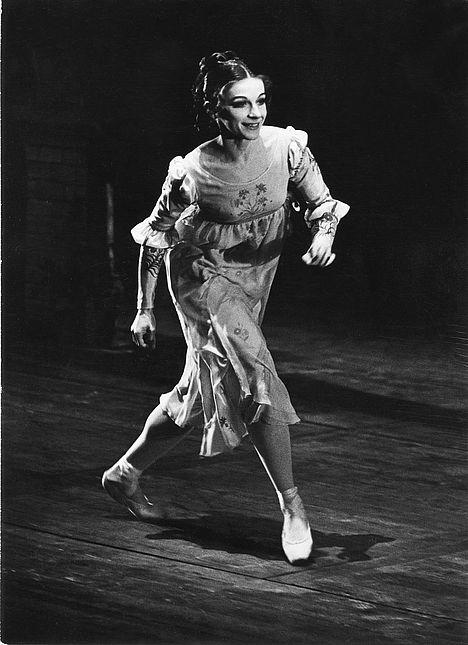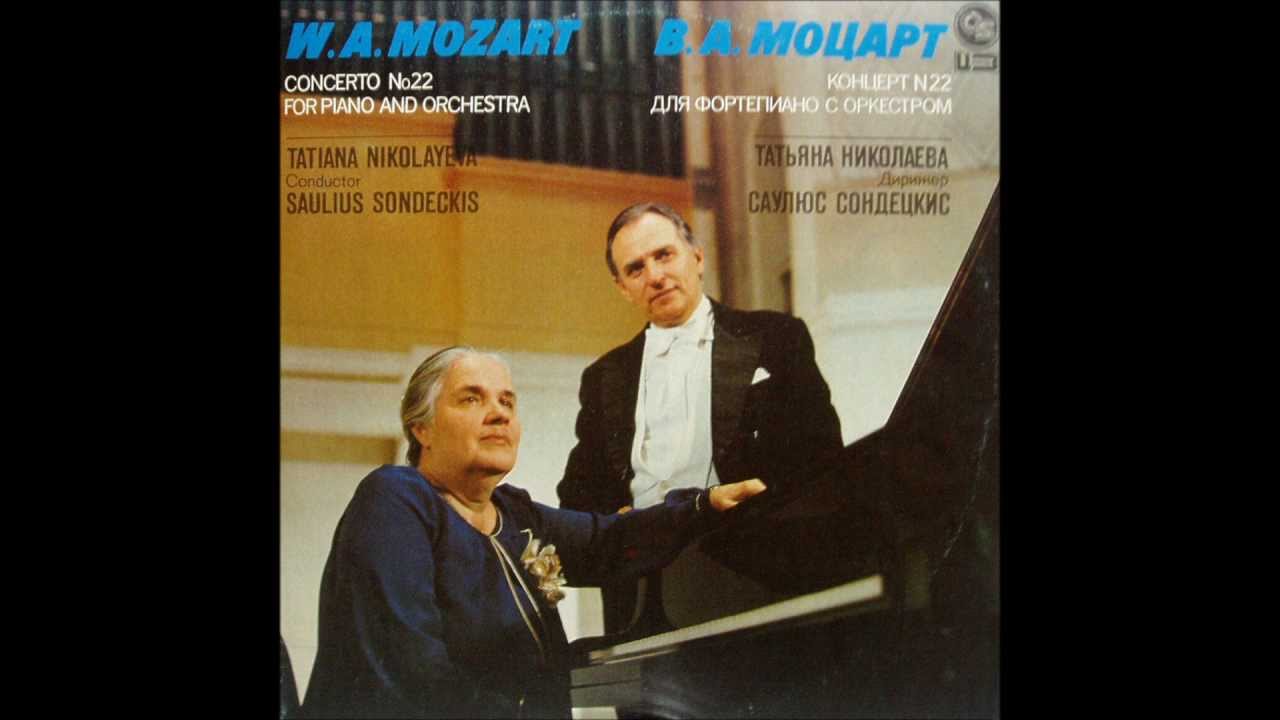What Covent Garden audiences really think of opera
OperaThomas Sharrock, a British student at the University of Pennsylvania, is so passionate about opera that he wanted to know what others felt.
Armed with a bunch of leaflets, he approached members of the Royal Opera House audience.
They’re supporting him at UPenn, where the PR dept has issued this account:
Sharrock attended seven operas at the Royal Opera House in London this summer through a Penn-funded research project of his own to explore audience perceptions about opera. ‘Opera is an art form that I love so deeply, but I also care very much that everyone has fair access to the arts, without undemocratically dictating which arts should receive government funding’ says Sharrock, who plans to double major in international relations and French and Francophone, Italian, and German studies, with a minor in music.
‘People generally tend to have very polarizing views.’ he says. ‘It’s either, yes, opera is definitely elitist or, no, opera isn’t elitist in any way. I think it is a really, really difficult question, with a great many more variables than first meets the eye.’
Sharrock conducted the survey by approaching patrons two hours before and during the intermission. The performances, between May 27 and July 20, included: “Aida,” “Il Trovatore,” and “La Traviata”; “Le Nozze di Figaro”; “Werther” and “Wozzeck”.
‘I literally went around audience members, handing out paper copies of the survey or getting them to scan a QR code and fill it out online,’ Sharrock says. ‘I was going around and asking people ‘I’m doing a study about public perception of opera, will you do this survey?’’
Surprisingly, few people refused to participate, and he received 420 survey responses in total, or an average of 60 each performance. ‘The overwhelming majority of people that I approached were more than happy to participate, and to share their thoughts on the questions. I think partly because I am a student, and also because this is a topic a lot of operagoers are very engaged in.’
Even with his success, he found the task somewhat daunting. “You have to build up a lot of courage inside to just walk up to people and interrupt their conversation to ask if they might participate,” he says.
One of the more fulfilling aspects about the project, he says, has been ‘surveying audience members and then walking past them five minutes later, and hearing them having an in-depth conversation about the questions that it raises. I’ve really enjoyed listening to that and seeing that people really care about this.’
Sharrock plans to work with a statistician to analyze the survey data and write a report by September. He also plans to share the results with the Royal Opera House. ‘I think there is definitely enough data to make some solid conclusions,’ he says. ‘We want to understand whether these places are evolving socially and culturally, and what people’s perception of this art form is today, in one of the largest state operas in the world.’






His study would be more effective if he were to visit other Arts Council funded opera companies in Britain who provide opera more cheaply. The ROH is not elitist but there will always be some people who would not agree.
I think he is to be applauded for an interesting project and would agree with your observations but say could be more effective as opposed to would. However that is a much larger project. Great start though.
Depends what he is studying and what his research questions are. What matters is whether methodology, data, and research question(s) align.
This specific case study explores perceptions of opera-goers at the ROH, but I have also had the chance to speak with industry professionals (Stuart Murphy CEO of the ENO, and Henry Little of Opera Rara, and Michael Moody of The Grange Festival) about how their models and audiences differ. Contextualisation is always important!
One would think this is rather fundamental. Why hasn’t this already been done by their own marketing department, or were the results too dispiriting to use for those purposes or meetings with ACE or other govt and funding bodies?
A very interesting point – the study will also explore the surveys/studies already in existence, and why they are and are not valuable to funding bodies.
Do you ever proofread before you post? “Thomas Sharrock, a British student at the University of Pennsylvania, is so ppassionate about opera that he wanted to know what otbhhers felt.”
Very hard to proof-read one’s own typing but so easy to spot others’ mistakes!
I hope UPenn has taught him something about statistics so that he will not end up parading percentages, etc., based on his non-random, non-controlled survey data.
Precisely. He may have randomly sampled patrons attending these operas, but limiting the sampling to people attending Royal Opera House productions results in a massive selection bias that’s in no way representative of the universe (population).
The results, therefore, are meaningless. GIGO. I’m surprised that the UPenn Publicity Department didn’t realize this before preparing this press piece.
… or perhaps I’m not.
As the press release makes clear, his population is opera audiences, not “the universe.” The selection is deliberate, and operates both on sample and population.
No, this is what the press release makes clear:
“Sharrock says. ‘I was going around and asking people ‘I’m doing a study about public perception of opera, will you do this survey?”’’
That isn’t the same thing as asking opera-goers what their impression of opera is. (No great insights to be discovered from that sample, either.) GIGO.
Hi there! Obviously this is speculation about what my study contains on your part, but this specific case study is not meant to be representative of the universe – it’s about understanding the perceptions of patrons at the ROH specifically, and then using data I have collected to understand in what ways this is and is not representative of other opera companies and populations. Unsurprisingly, perception also varies depending on what specific opera you are attending, which is something I hope to explore in more detail. Please get in touch with any suggestions, and look over the report once published – your opinions are valuable too!
You anticipated my own query: it will be interesting to see if the attendees at Wozzeck differed in their judgments from those at the earlier works. A pity that no opera by Adams or Ades was available to sample, but the opportunities for follow-up are limited only by time and budget…
Do also look at Opera North based in Leeds. The standard is superb. Affordable prices and definitely not elitist. I certainly could not afford ROH prices.
You definitely can afford the ROH!
I’ve seen amazing shows in the Linbury for 15£, best seats!
Even the main stage productions have tickets for under 20£ available
Well, given that the press release says explicitly that he is “exploring audience perceptions about opera”, I don’t think that will be an issue. The sample matters; the population studies does, too. It would, also, be good practice to not judge a research paper based on a preliminary press release when you don’t have any insight into research questions, approaches, and methodology.
I trust you have reached out to him to offer your clearly extensive expertise on the matter.
Any person asking me my views about opera, I would reply in the words of Mr G F Handel esq of Brook street, I should be sorry if I merely entertained them, I wish to make them better.
Watch the 1942 film (in colour), The Great Mr Handel.
This is really social science aka pseudoscience, collecting opinions is not data, as Richard Feynman points out. In social science they have not established any laws. It is not physics, like gravity or thermodynamics which can be proved by experimentation. Collating the views and opinions of audiences on opera is merely qualitative. Opinion is not fact as any KC will tell you.
https://www.youtube.com/watch?v=tWr39Q9vBgo
Opinion is not fact, but opinions can lead to facts, e.g. electoral decisions. And they can be the topic of research. Read a handbook on empirical social science methodology before you offer your opinion on something you obviously don’t understand.
I notice his survey has not included any baroque opera, or Wagner or Richard Strauss or even Birtwistle!
Blame the ROH programming team!
I’m glad to see the Royal Opera House is at last interacting with its audience base and assisting in their research. I’m still waiting for a reply to either of the two letters I sent them asking for permission to undertake research for my Economics degree dissertation. I was also a “”Friend” at the time. This was in 1987. I don’t bear a grudge, but the majority of my “in person” opera going is in Seville, Oslo, ENO, WNO and, in the good old days when we could travel to the USSR/Russia, the Maryinsky and the Bolshoi. I watch the MET at the cinema. It’s just so much easier to book tickets and travel to Oslo and the cost of a weekend there is no more than a weekend in London – and with Viking longships soon to be able to be visited again . If the ROH was a little more community- centered it would have responded and kept a keen audience member. I am grateful to the Nottingham Playhouse and the Royal Theatre Nottingham for their assistance with my research.
I hope he included the information about the seats of his interviewees. People who sit at upper slips are probably not going to think the same as people who sit in boxes.
I can confirm that naturally, this has been taken into account – this data point has been moderated by ticket price, which also means that the study will be able to understand what folks using the Young ROH programme think specifically!
What is the quantitative metric in this “survey”? It seems just about subjective views and opinions on operas which are neither facts nor numeric data to test a hypothesis. Where is the control data set?
He will not get the Nobel prize for this work.
Hi Martin! As the researcher conducting this study, I can confirm that there are both qualitative and quantitative aspects. Obviously one without the other might create an incomplete picture. As far as control data sets goes, I have box office data from the ROH which allows me to understand how representative my sample is of the house as a whole on any given night. That said, it is precisely opinions which I am interested in! What do attendees of Covent Garden believe about opera today, and about the ROH specifically, and where might these opinions have been grounded? I hope you take the time to read the full study once it is released!
Thomas. But what is the hypothesis? What are you trying to demonstrate or prove? What law are you trying to establish relating to attending opera? Do more people attend more Verdi operas than Handel? My problem with this study as in many social science surveys is precisely what Richard Feynman has pointed out.
https://www.youtube.com/watch?v=tWr39Q9vBgo
If someone asked me my view on opera, I would reply as Mr G F Handel did, ” I should be sorry that I merely entertained them, I wish to make them better”.
Perhaps you could determine any differences between those who attend say Wagner operas compared to those who only attend baroque opera and why.
I don’t see the value of this at all.
That just about sums it up.
Perhaps you are somewhat negative about Sharrock’s initiative.
Qualitative market research has a place and value. You can get insights from group discussions/focus groups/depth interviews which, although they have no quantitative value, may give you a view on the subject at hand.
As long as Sharrock does not get into percentages and so on, his work should not be dismissed before it has been seen
I hope he provided a definition of precisely what he meant by ‘elitist’ in this context. it is a term bandied around far too lazily. one can demand excellence without being a member of a social or other kind of elite.
I took a brief look over his survey form I spotted on the web, it seems like a marketing survey for ROH attendees. It asks what the ticket price range they bought etc. As someone who does not live in GB, I would say this, overnight stay in London, expensive ROH tickets expensive. Some years ago, I went to Berlin, Vienna, Innsbruck, where I saw operas, Wagner, Lohengrin, Tannhauser, Parsifal, Weber Der Freischutz, Rossini Barber, Beethoven Fidelio, Handel Agrippina, Purcell, Pergolesi, Monteverdi, Hasse, for under 80-100 Euro. The hotel was more affordable than London. Also it was far easier to get there and back home! For 10 years I booked the entire Innsbrucker Festwochen, which had 2 baroque operas, cantatas, etc. It was more affordable than London.
I have attended ROH operas in the past long before the war, cov-19 and the cost of living crisis. I could afford a good seat Die Zauberflote, in 2023 impossible.
The survey has an inherent bias as it only surveys attendees at ROH. There are many folk who like opera but could not afford to shell out £200+ on a ticket or afford to stay in London. How many of the respondents are locals from London, how many from the wee shires, how many from Scotland, Wales, Ireland, Northern Ireland etc. Is this being recorded at all.
An interesting approach, but Opera has long been its own worst enemy for many years in this country. The stuffy ‘elitist’ tag is hard to get rid of and with ridiculously over-the-top ticket prices, Opera companies don’t exactly help themselves promote this art form to a wider audience. Having just re-read John Culshaw’s wonderful book, ‘The Golden Ring’, it’s final chapter 6 is well worth reading in this context. Wagner, of course, abhorred the attitude of Opera being regarded as an exclusive ‘closed-shop’ in his lifetime; shocking that this attitude still largely predominates in the present age. If the efforts of Mr. Sharrock can bring about any change in this area then that’s no bad thing.
I want to know what Doc Martin thinks… :/